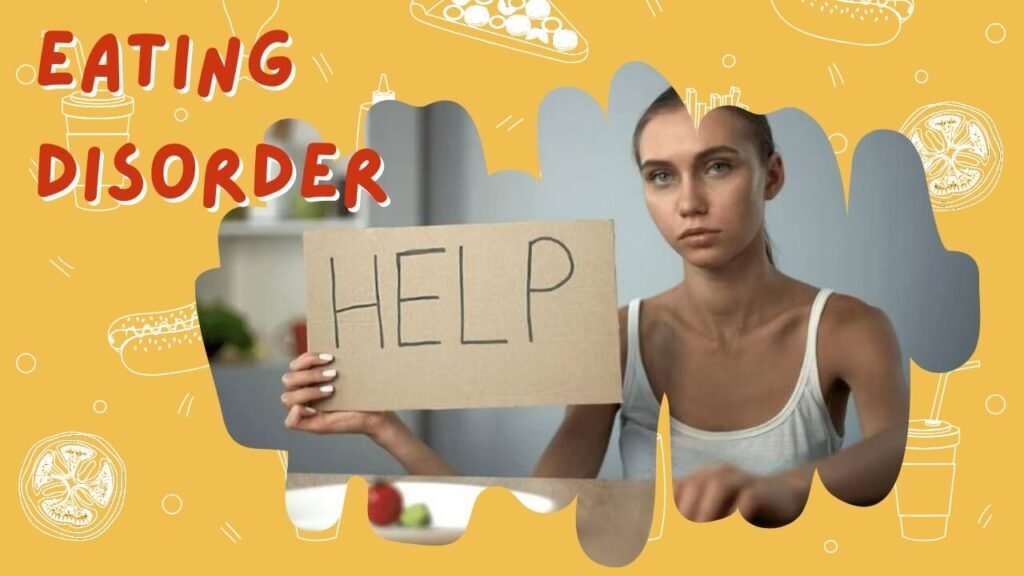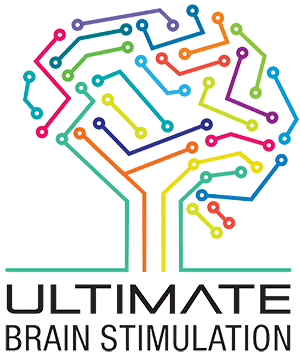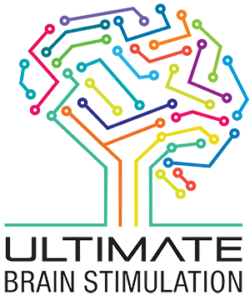Introduction
A person with Binge Eating Disorder (BED) does more than just eat too much. They have a major mental illness that can have a huge effect on their physical and mental health. I’m Dr. Murugappan, and I started the Ultimate Brain Stimulation Clinic in Chennai. My job is to help people with these kinds of problems by using new and effective treatments. This piece will talk about binge eating disorder, the different ways we treat it, and give patients who want to take back control of their lives some advice.

What is Binge Eating Disorder?
Defining Binge Eating Disorder
People who have Binge Eating Disorder often eat a lot of food at once, often quickly and to the point of pain. Unlike people with other eating problems, people with BED don’t do things like vomit or work out too much to feel better. A lot of the time, the disorder makes people feel bad about themselves, guilty, and upset.
Symptoms of Binge Eating Disorder
Recognizing the symptoms of BED is the first step toward seeking help. Common symptoms include:
- Eating unusually large amounts of food in a specific period.
- Eating even when full or not hungry.
- Eating rapidly during binge episodes.
- Eating alone due to embarrassment.
- Feeling distressed, ashamed, or guilty after overeating.
Causes and Risk Factors
Multiple biological, psychological, and social factors can interact in a complicated way to cause Binge Eating Disorder. Some common reasons and risk factors are:
- Genetic predisposition: Eating disorders or mental health problems run in the family.
- Psychiatric factors: Include low self-esteem, sadness, anxiety, or a traumatic event.
- Dieting History: A history of unstable weight or strict diets.
- Environment-based triggers: Include upsetting events, social pressures, or national norms about how to look.
The Impact of Binge Eating Disorder on Health
Physical Health Consequences
Physical health risks that come with BED are serious and can include:
- Obesity: A big risk factor for heart disease, diabetes, and high blood pressure.
- Gastrointestinal Issues: Chronic overeating can lead to digestive problems.
- Sleep Apnea: Increased body weight can contribute to obstructive sleep apnea.
- Joint Pain: Excessive weight strains joints, leading to pain and mobility issues.
Mental Health Impact
Binge Eating Disorder doesn’t only affect the body; it has profound mental health implications:
- Depression and Anxiety: The cyclical nature of binge eating and subsequent guilt can worsen these conditions.
- Low Self-Esteem: Persistent negative self-image and feelings of worthlessness.
- Social Isolation: Embarrassment and shame can lead to withdrawal from social situations.
Why Choose the Ultimate Brain Stimulation Clinic?
Innovative Treatment Approaches
At the Ultimate Brain Stimulation Clinic, we employ a range of cutting-edge therapies to treat Binge Eating Disorder. Our approach is holistic, targeting both the mind and body.
Transcranial Magnetic Stimulation (TMS)
One of our most effective treatments for BED is Transcranial Magnetic Stimulation (TMS). This non-invasive procedure uses magnetic fields to stimulate nerve cells in the brain, helping to regulate mood and control binge eating impulses.
TMS is non-invasive magnetic stimulation of the brain. Repetitive Transcranial Magnetic Stimulation improves social interaction and decreases anxiety-depressive like behaviours. Repetitive Transcranial Magnetic Stimulation aids in neuroplasticity, a form of rewiring the brain.
A small coil positioned in specific spots over the scalp identified by the psychiatrist , produces rapidly changing magnetic field that passes through scalp and skull bone. This magnetic activity influences brain’s activity. The coil placement site, the type, speed, number and strength of the magnetic pulse is determined by various protocols as determined by the psychiatrist, depending on the requirement.
The treatment duration may range from 3 minutes to 40 minutes. Total number of sessions vary from 5-30 that is spaced out over a period. The sessions extend over 4- 6 weeks. Safety as the first priority has been proven in all the studies.
Treatment session: During the session, the magnetic coil will be placed over the selected site. A test pulse will be given to determine the individual’s sensitivity (resting motor threshold), based on which the treatment pulse strength will be decided and the session started.
During session, a clicking or tapping sound will be heard and a feeling of tapping will be felt. This may be felt over the forehead or over eyes and face. The magnetic pulse will be on and off during the entire session at the chosen speed. These sessions are always customised.
Safety: Repetitive Transcranial Magnetic Stimulation treatment is safe. The safety of TMS is well established even in the presence of other neuropsychiatric conditions like epilepsy, ADHD etc. If scalp pain or discomfort appears, it vanishes immediately after the session without any interference. TMS is FDA approved for the treatment of drug resistant depression.
Other uses of rTMS: rTMS is also useful in OCD, anxiety, addictions, schizophrenia, PTSD, fibromylagias and stroke recovery.
Advantages of Repetitive Transcranial Magnetic Stimulation treatment:
- High success rate in symptom reduction for autism
- Improvement in social behaviour and speech
- TMS is non-invasive, non sedative and free from side effects.
- No anaesthesia is required for TMS Therapy.
Repetitive Transcranial Magnetic Stimulation treatment
- Decreases the repetitive behaviour and actions
- Irritability and depression are controlled
- Enhances motor performance
- Brings under control of attention deficits
When do we see the results of TMS treatment?
The noticeable change in behaviour begins after 5-10 session and is slow and steadily progressive. Occasionally, the changes may not manifest for a longer period.
Types of TMS
Various modes and protocols are followed and the number of pulses, speed, strength, type of coil , duration of treatment vary with different modes. They include:
Repetitive TMS with Figure of 8 coil HF and LF methods
Theta burst mode in special modes in shortest duration of 3 minutes.
Deep TMS with H coils for deeper penetration.
Nutritional Counseling
Our team of expert dietitians works closely with patients to develop personalized meal plans that promote balanced eating habits and reduce the likelihood of binge episodes.
Mindfulness-Based Therapies
Mindfulness techniques, including meditation and stress management practices, are integrated into our treatment plans to help patients become more aware of their eating habits and emotional triggers.
Patient-Centered Care at Ultimate Brain Stimulation Clinic
Individualized Treatment Plans
Every patient at our clinic receives a customized treatment plan tailored to their unique needs and circumstances. We believe that no two patients are the same, and their treatment shouldn’t be either.
Supportive Environment
We provide a safe, non-judgmental environment where patients can feel comfortable discussing their challenges and progress. Our team is committed to supporting each patient through every step of their recovery journey.
Long-Term Follow-Up Care
Recovery from Binge Eating Disorder is a long-term process, and we offer continued support to our patients even after the initial treatment phase. Our follow-up care includes regular check-ins, therapy sessions, and nutritional guidance to ensure lasting success.
Doctor’s Advice to Patients
Seeking Help is the First Step
If you’re struggling with binge eating, remember that you’re not alone and that help is available. The first step is recognizing that you need support and reaching out for it.
Be Patient with Yourself
Recovery is a journey, not a destination. Be kind to yourself, and understand that setbacks are a natural part of the healing process.
Embrace a Holistic Approach
Successful treatment of BED involves addressing both the mind and body. Engage fully in all aspects of your treatment, including therapy, nutritional counseling, and mindfulness practices.
Build a Support System
Surround yourself with supportive friends, family, and professionals who understand your challenges and can offer encouragement.
Stay Committed to Your Recovery
Consistency is key in overcoming binge eating disorder. Stick with your treatment plan, attend all sessions, and follow your healthcare provider’s advice.
Conclusion
Binge Eating Disorder is a serious but treatable condition. At the Ultimate Brain Stimulation Clinic, we offer comprehensive and personalized treatment plans to help individuals regain control over their lives. If you or someone you know is struggling with BED, don’t hesitate to reach out to us for support. Together, we can work towards a healthier, happier future.
FAQs
What is the success rate of TMS in treating Binge Eating Disorder?
TMS has shown promising results in reducing binge eating episodes, particularly when combined with other therapies like CBT. While success rates can vary, many patients experience significant improvement.
How long does it take to see results from treatment?
Results can vary depending on the individual and the severity of the disorder. However, many patients start to see improvements within a few weeks of beginning treatment.
Is treatment covered by insurance?
Some insurance plans may cover the cost of treatment, particularly if it includes therapies like CBT or TMS. It’s advisable to check with your insurance provider for specific coverage details.
Can Binge Eating Disorder be cured completely?
While BED can be effectively managed, some individuals may continue to experience challenges. However, with ongoing treatment and support, many people lead healthy, fulfilling lives.
What should I do if I suspect someone I know has BED?
If you suspect someone has BED, encourage them to seek professional help. Approach the subject with sensitivity and offer your support without judgment.
Make an Appointment Today and Shine Brighter!
Call us at(+91)9444437698!
For more information on Depression, visit Ultimate Brain: Depression.
Watch on YouTube.
Contact us on WhatsApp.
Connect with her on LinkedIn.
For additional wellness services, check out Silkee.

